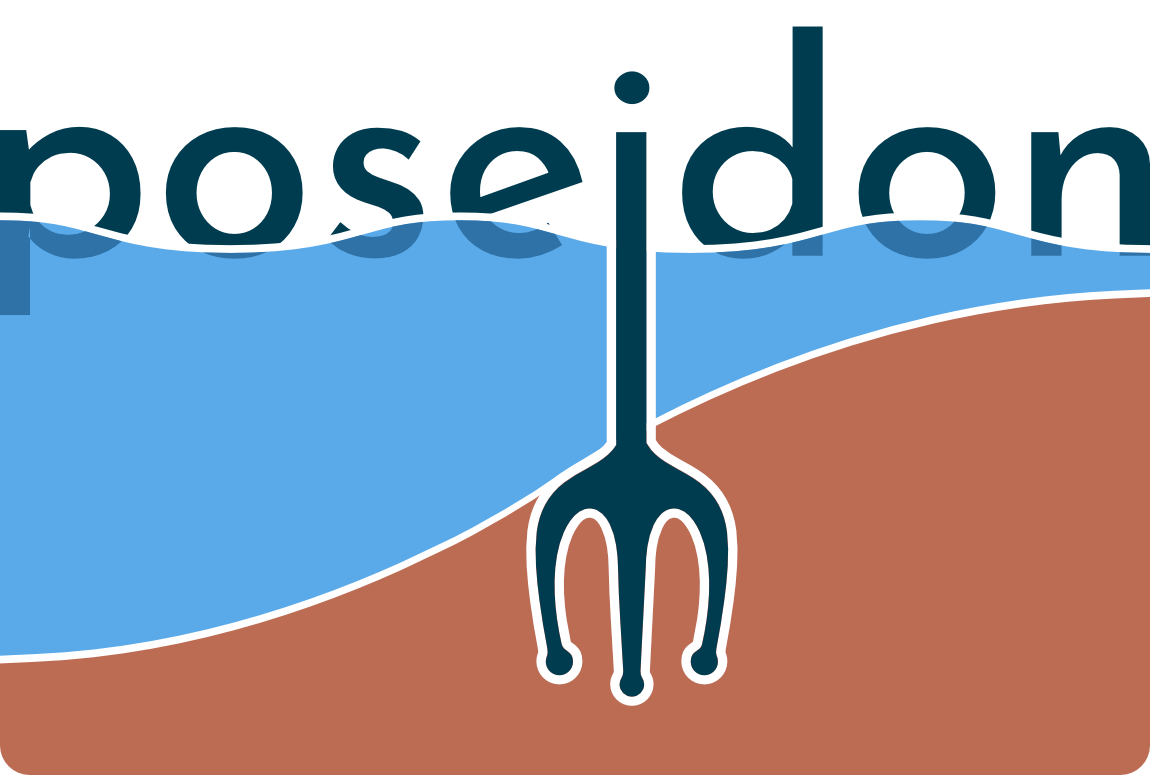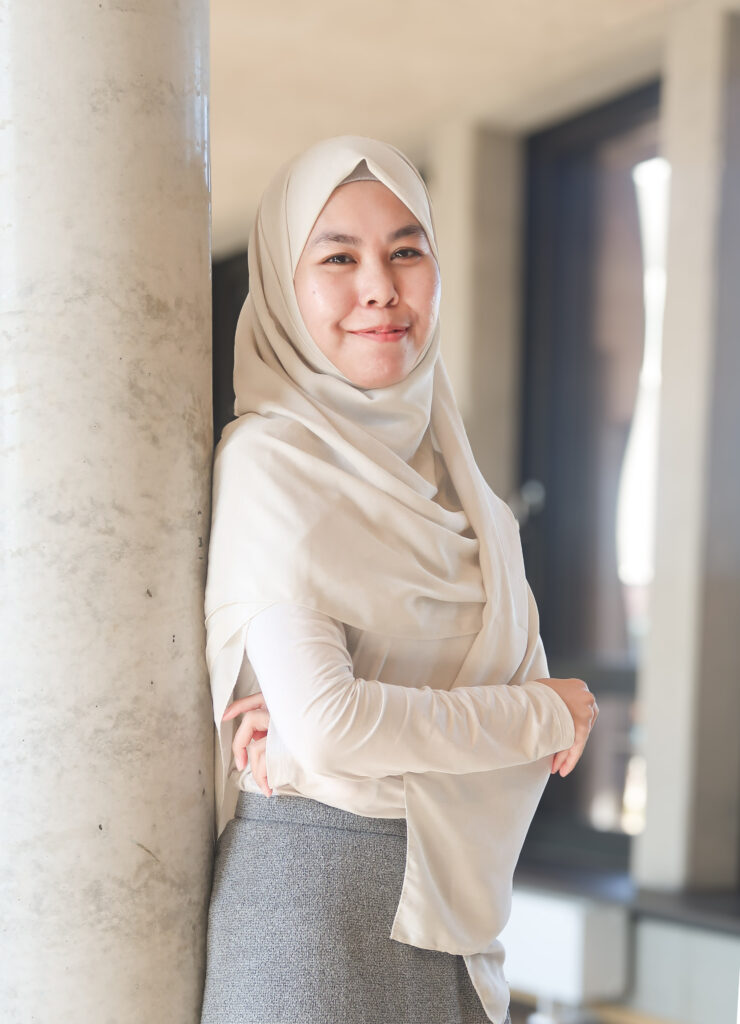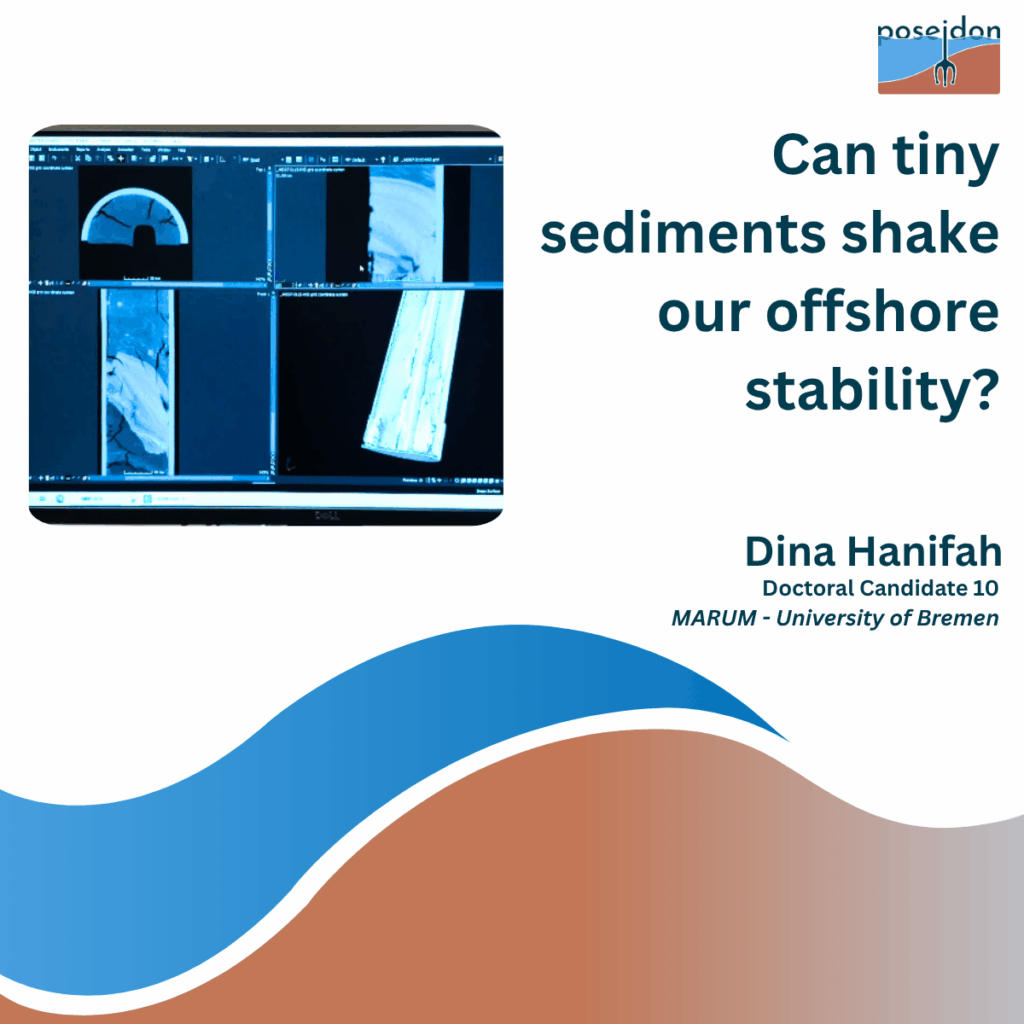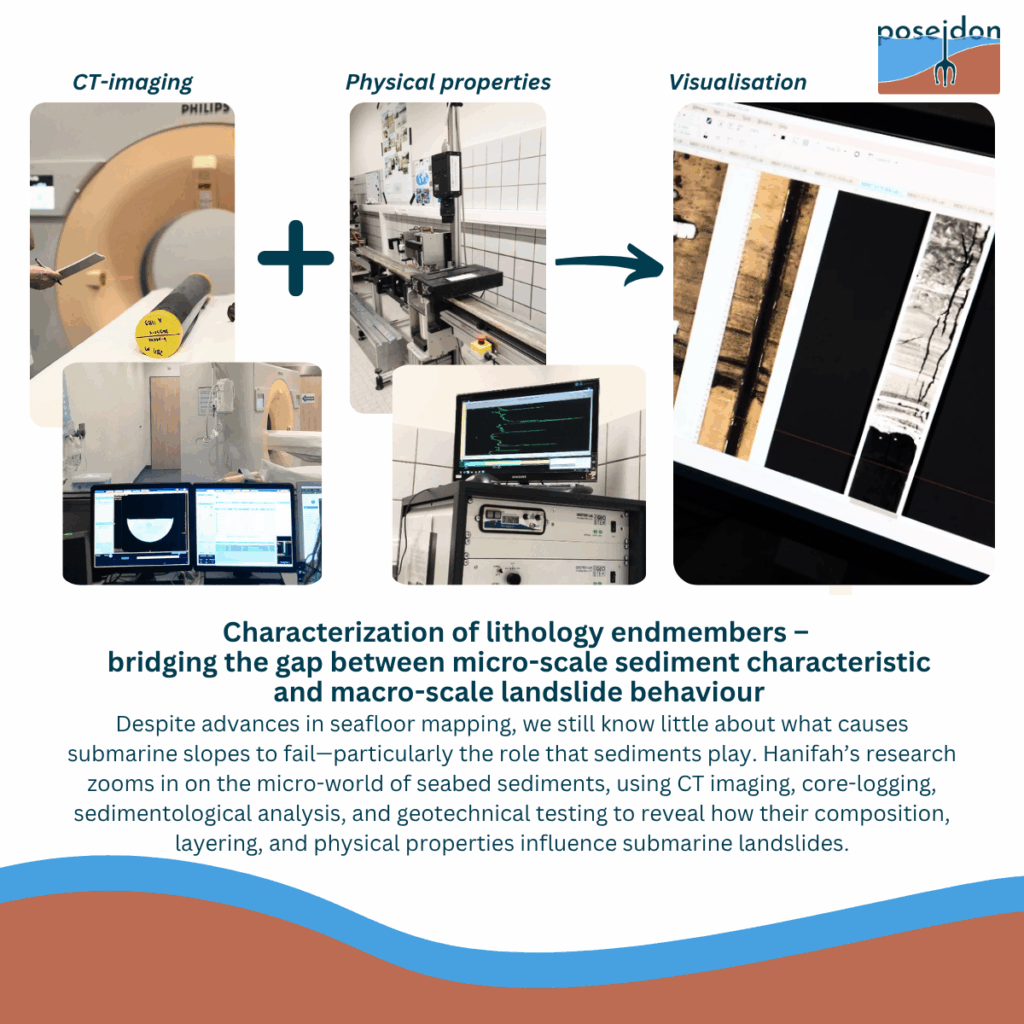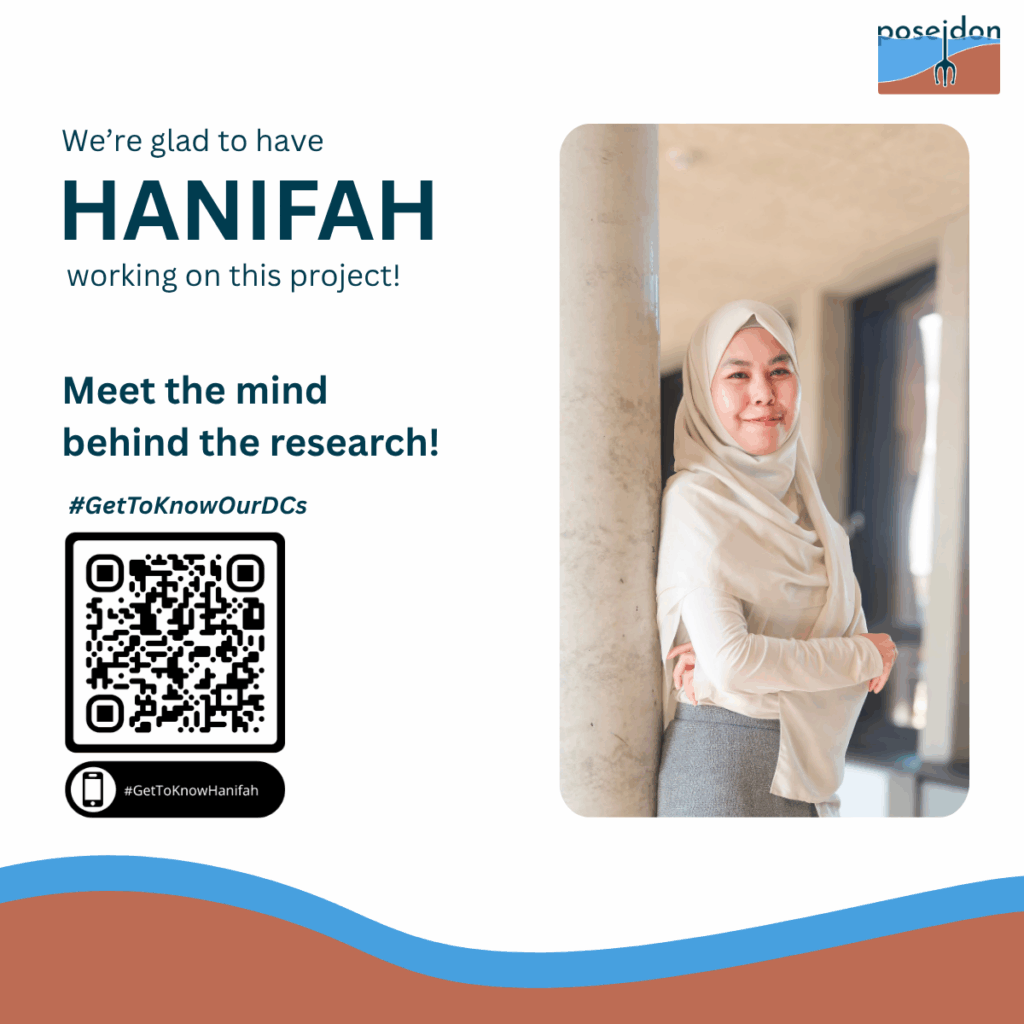Information about yourself
Hi everyone! I’m Hanifah, a Marine Geologist originally from Indonesia. My passion for understanding the ocean and the geohazards hidden beneath its surface has taken me across the globe. I studied Geological Engineering at Jenderal Soedirman University before pursuing two Master’s degrees: one in Marine and Lacustrine Geosciences (VLIR-UOS scholar, Belgium) and another in Engineering Geology (Manaaki New Zealand scholar). In recent years, I’ve been actively involved in international marine research campaigns, including those led by the International Ocean Drilling Program (IODP) and the International Seabed Authority (ISA), as well as collaborations with Australia–New Zealand institutions such as GNS Science, NIWA, and ANZIC. Now, I’m enjoying a new chapter as a Doctoral Researcher at MARUM, University of Bremen in Germany, where I focus on marine geohazards and their impact on offshore infrastructure resilience.
Information about your project
The title “Characterization of Lithology Endmembers – Bridging the Gap Between Micro-Scale Sediment Characteristics and Macro-Scale Landslide Behaviour” is a bit of a mouthful. But have you ever wondered how tiny grains of seafloor sediment could trigger massive underwater landslides? That’s exactly what I’m trying to explore!
My research focuses on how submarine landslides form and behave, particularly the role sediment lithology plays in their dynamics. These underwater mass movements pose serious risks to offshore infrastructure (e.g., cables, pipelines, and energy platforms), yet there’s still much we don’t understand about the link between sediment composition and slope stability.
At MARUM, University of Bremen, I use sedimentological and physical properties analysis, and geotechnical methods to connect micro-scale sediment features to large-scale slope behaviour.
You can read more about the technical side of my work on my project page.
Why POSEIDON?
Joining POSEIDON was an easy decision! It brought together everything I was looking for: interdisciplinary research, international collaboration, and a focus on solving real-world challenges through science.
Since starting this journey, I’ve connected with a diverse group of researchers across Germany, the UK, the Netherlands, France, and Norway — all bringing unique stories and perspectives shaped by their different backgrounds. I’m grateful to be part of such a vibrant community of PhD students, where we share not just nerdy science discussions and expertise, but also our challenges, excitement, and the occasional memes.
I’m looking forward to the road ahead! Growing as a researcher, expanding my network, and contributing to a safer, more sustainable offshore future.
